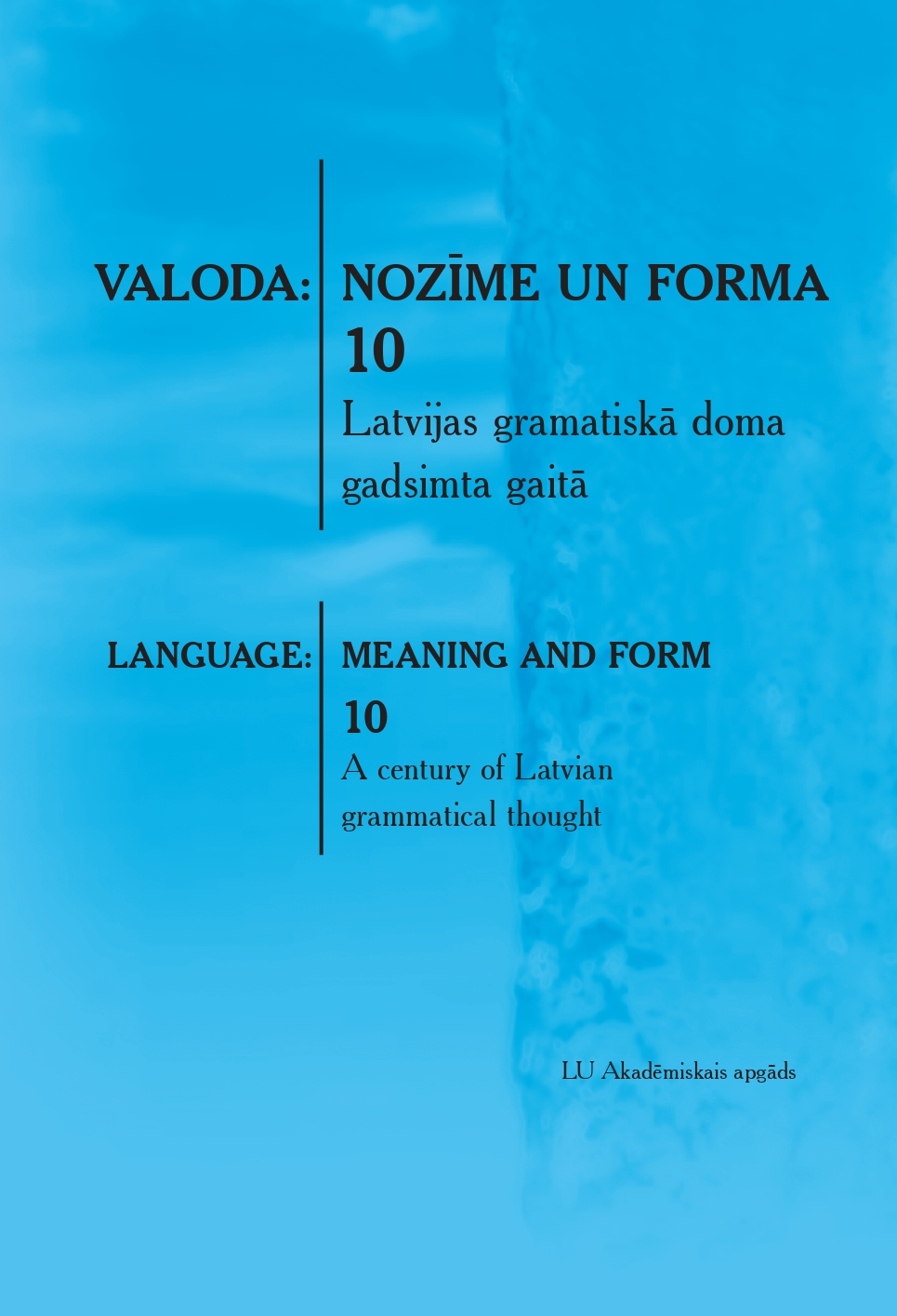Nenoteiksmes predikāts latviešu valodā, tā latīņu un sengrieķu analogi un Kārļa Mīlenbaha „abzolūtais infinitīvs”
Infinitive predicate in Latvian, Latin and Classical Greek and Kārlis Mülenbachs’ “infinitivus absolutus”
Author(s): Andra Kalnača, Ilze Lokmane, Ilze RūmnieceSubject(s): Syntax, Semantics, Historical Linguistics, Baltic Languages
Published by: Latvijas Universitātes Akadēmiskais apgāds
Keywords: infinitive; predicate; modality; copula; polarity; infinitivus absolutus;
Summary/Abstract: Kārlis Mülenbachs, who published his monograph “Teikums” (“A sentence”) at the end of the 19th century, provided the first scientific description of Latvian syntax. Paradoxically enough, several issues declared controversial in the theory of his time preserve such a status till present day. Among them there are infinitive predicative constructions, their typology and semantics. The term infinitivus absolutus used by Kārlis Mülenbachs also deserves attention as it is not used in current linguistics. Our contribution is devoted to the discussion of three major theoretical issues. The first one is linked to the definition, typology and usage of infinitive predicative constructions in Latvian, Latin and Classical Greek. The second delves into the question whether we can argue that infinitive predicative constructions represent the same type in all three languages. The third is the question why the term infinitivus absolutus is used mainly in the diachronic analysis of the ancient languages, but we do not encounter it in the description of modern languages. The article is divided into five parts. First, there is an introduction that includes the definition of infinitive predicative constructions and the description of the purpose of our research. The second and third parts are devoted to the typology, semantics and pragmatics of the Latvian infinitive predicative constructions, while the fourth part discusses these constructions in Latin and Classical Greek. The fifth part deals with the interpretation of the notion and term infinitivus absolutus.
Journal: Valoda: nozīme un forma
- Issue Year: 2019
- Issue No: 10
- Page Range: 76-91
- Page Count: 16
- Language: Latvian

